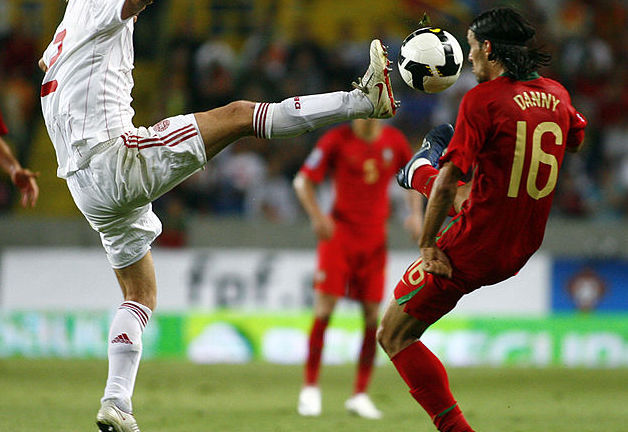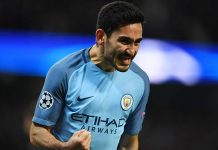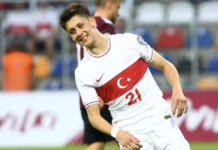Roberto Martínez’s side compiled a perfect record in qualifying and can call on the resurgent Cristiano Ronaldo
By Nuno Travassos
This article is part of the Guardian’s Euro 2024 Experts’ Network, a cooperation between some of the best media organisations from the 24 countries who qualified. theguardian.com is running previews from two countries each day in the run-up to the tournament kicking off on 14 June.
Prospects
The individual quality of Portugal’s players makes the team one of the tournament favourites, something that was reinforced during qualifying. It is true their group was not the most demanding – Slovakia finished second and Luxembourg third – but you can only beat what is in front of you and Roberto Martínez’s side won all 10 games, scoring 36 and conceding two. It made them the highest-scoring team in qualifying, as well as the team that let in fewest goals.
So at the moment there is only praise for Martínez, who replaced Fernando Santos after the disappointing World Cup in Qatar, when Cristiano Ronaldo found himself relegated to the bench. The appointment of the Spaniard made it possible to reboot without deleting the captain from the hard drive. Ronaldo scored 10 goals in qualifying, a number bettered only by Belgium’s Romelu Lukaku (14) and helped the team to reach the finals in Germany in the calmest possible way.
Portugal qualified playing easy-on-the-eye, attacking football with a versatile tactical structure, making full use of the individual qualities of players such as Bruno Fernandes, Bernardo Silva and João Cancelo. A pre-tournament defeat against Croatia dampened spirits in Portugal but Bruno Fernandes said: “There are always aspects to improve. To be honest, I like a bit of this negativity around the national team, ‘the team isn’t as good any more’, ‘it’s still not what we want’. I like it because it’s a sign that people expect a lot from us.”
Portugal seem as comfortable playing with three central defenders as they do with a back four. Against Lichtenstein Martínez even had Rúben Neves at the back, knowing the midfielder would be able to build attacks from an advanced position in the opponents’ half.
Up front, Ronaldo can play either a more isolated role through the middle with support from Bernardo Silva, João Félix or Rafael Leão – or Gonçalo Ramos can join the captain up front. This team are capable of playing 3-4-3, 4-3-3 or 4-4-2 – often in the same game – and that flexibility allows the players to showcase their technical and strategic intelligence.
“I don’t believe in systems. I believe in human beings who play football and for them to be tactically flexible, never forcing a talent to adapt to a system,” Martínez said at his presentation. That day he also said it was necessary to “dream big”, and the work he has carried out since has fuelled expectation at home. Portugal are considered one of the three or four teams with the best chance of winning Euro 2024.
The coach
The appointment of Roberto Martínez was met initially with some reservations. Not so much because he was replacing the man who had taken the team to Euro 2016 glory – Fernando Santos’s image had deteriorated in his last years in charge – but more because there was hope José Mourinho would take the job. However, Martínez made a good impression from the start. Despite speaking Spanish, a language the Portuguese understand well, he set about learning Portuguese and has a far superior communication strategy to his predecessor. He made a point of immediately visiting several players – including Cristiano Ronaldo in his new home in Saudi Arabia – and continued the charm offensive with a football philosophy that immediately captivated the players. “The Portuguese have the best professional players in Europe,” he said, highlighting their competitiveness and tactical awareness.
The icon
Without a club, relegated to the bench and in conflict with the coach, Santos: at the end of Portugal’s World Cup in Qatar, after a quarter-final against Morocco, it looked like the long and successful Cristiano Ronaldo cycle had ended. A few weeks later, however, CR7 was being presented at Al-Nassr and Roberto Martínez replaced Santos. “My impression, when I first spoke to him, was that of an 18-year-old person,” said Martínez, who was in Riyadh a few days after being hired. “For most players, the body fails first and the head then has to accept it. With Cristiano, the opposite seems to happen. The body will only stop when the head says it has to stop.” The Saudi Pro League may not be as good as Ronaldo says it is but it has allowed him to score goals again. At 39, he will become the first player to appear in six European Championship finals tournaments. “I’ve already learned that anything can happen,” the forward said. “I’m enjoying the present and now I aim to go to the Euros to see what happens. I want to enjoy the moment.”
One to watch
“The first time I saw João Neves was with the under-19 team and I immediately saw the talent he has,” Roberto Martínez said in January. “But it was difficult to predict that he could move so quickly to the first team and to play as well as he has with Benfica.” In the end the Spaniard could not resist the qualities of the diminutive midfielder who plays with his shirt tucked into his shorts, and who has won over his teammates with talent and humility. “I have never seen anything like it in my career. Within two days he had gained the respect of the whole dressing room,” Martínez said.
The maverick
João Cancelo is not a player who usually causes problems with teammates, but is probably the person who has his heart closest to his mouth. At Manchester City he fell out with Pep Guardiola and was loaned to Bayern Munich and Barcelona. He is emotional and it shows on the pitch, where he sometimes combines his unique prowess in defence and attack with silly mistakes. “There were times when I wasn’t at my best psychologically and that affected me a lot in different competitions, like the last World Cup,” he told A Bola.
The spine
In Diogo Costa Portugal have one of the world’s most promising goalkeepers. He gives the team security and a good start in buildup play with his footwork. Pepe has been the undisputed leader of the Portugal defence for a long time but has had fitness problems and Rúben Dias is ready to assume that mantle. The Manchester-based Bruno Fernandes and Bernardo Silva are the brains of the team with the former poised to inherit the captain’s armband. Up front the main reference point remains Cristiano Ronaldo.
Celebrity fan
Ever since Euro 2004 in Portugal, members of rock band the Gift have been following the major tournaments, sometimes combining them with concerts in the host countries, sometimes just following the team. Carlos Brum is not a celebrity in the world of entertainment, but he has become Portugal’s No 1 fan, missing one tournament in the past 22 years. Whenever he can he travels in his van to watch the Portugal team. The best known Portugal fan abroad, though is Cristiano Ronaldo’s mother, Dolores Aveiro, who always seems unfazed by media scrutiny and supports the team with uninhibited passion from the VIP box.
Culinary delight
Nothing beats the ritual of having a bifana (pork steak sandwich) and a beer before and/or after the game, often from a food truck near the venue.
Portugal team profile written by Nuno Travassos for A Bola











